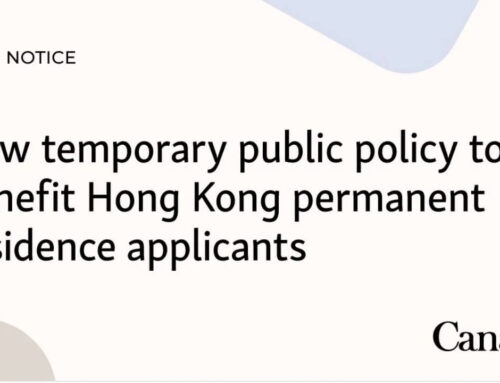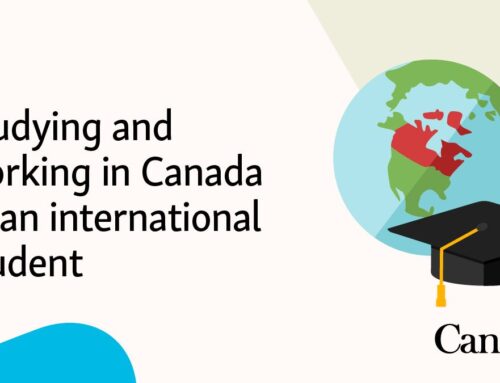Canada Changes to Protect International Students
In order to protect the integrity of the international student program, Immigration, Refugees and Citizenship Canada (IRCC) has implemented several changes and temporary policy extensions.
Changes on October 27, 2023
Previously, on October 27, 2023, IRCC announced several changes to the international student program to better protect students from fraud.
These measures include the following:
- Starting December 1, 2023, post-secondary designated learning institutions (DLI) will be required to confirm every applicant’s letter of acceptance directly with IRCC in order to protect students from letter of acceptance fraud. It will also ensure that study permits are issued based only on genuine letters of acceptance.
- In the Fall 2024 semester, IRCC introduce a “recognized institution” study permit priority processing framework to benefit post-secondary DLIs that set a higher standard for services, support and outcomes for international students.
- IRCC will conduct a complete an assessment of Post-Graduation Work Permit Program (PGWP) criteria and begin introducing reforms to better calibrate it to meet the needs of the Canadian labour market, as well as regional and Francophone immigration goals.
Changes on December 7, 2023
Then, on December 7, 2023, (IRCC) announced that as of January 1, 2024, the cost-of-living financial requirement for study permit applicants will be raised so that international students are financially prepared for life in Canada.
Moving forward, this threshold will be adjusted each year when Statistics Canada updates the low-income cut-off (LICO). LICO represents the minimum income necessary to ensure that an individual does not have to spend a greater than average portion of income on necessities.
Currently, the documentation requirement for cost-of-living requirement for study permits remain at $10,000 for a single applicant; however, students are expected to keep up with the cost of living, which has increased every year. This causes international students to experience serious challenges, such as rising tuition costs, inadequate funding and a lack of adequate housing, as they pursue their studies in Canada. For example, as of January 1, 2024, a single study permit recipient must now show $20,635, representing 75% of LICO, in addition to their first year of tuition and travel costs.
Ahead of the September 2024 semester, in conjunction with with provincial and territorial governments, learning institutions and other education stakeholders, IRCC plans to limit visas, to ensure that designated learning institutions provide adequate and sufficient student support as part of the academic experience to set up students for success.
Temporary Policies:
- The waiver on the 20-hour-per-week limit on the number of hours international students are allowed to work off campus while class is in session is extended to April 30, 2024. International students already in Canada, as well as applicants who have already submitted an application for a study permit as of December 7, 2023, will be able to work off campus more than 20 hours per week until that time. In addition, there are plans for this policy to be expanded and off-campus work hours for international students will be extended to 30 hours per week while class is in session.
- The facilitative measure that has allowed international students to count time spent studying online towards the length of a future post-graduation work permit, as long as it constitutes less than 50% of the program of study, will continue to be in place for students who begin a study program before September 1, 2024. This measure will no longer apply to students who begin a study program on or after that date. Distance learning facilitation measures were first implemented in 2020 in response to travel restrictions during the pandemic, and were reduced in scope in September 2022.
- In response to labour market disruptions during the pandemic and post-pandemic recovery, a temporary policy was introduced on 3 occasions to provide an additional 18-month work permit to post-graduation work permit holders as their initial work permit was expiring. Foreign nationals with a post-graduation work permit expiring up to December 31, 2023, remain eligible to apply. However, this temporary policy will not be extended further.
Facts
- International education accounts for more than $22 billion in economic activity annually, greater than Canada’s exports of auto parts, lumber or aircraft, and supports more than 200,000 jobs in Canada.
- Quebec establishes its own cost-of-living threshold for international students destined for Quebec’s learning institutions and has continued to raise this threshold periodically.
- The new financial guidelines are also being applied to the Student Direct Stream, a special study permit application process available to residents of 14 countries that requires additional up-front information from the applicant and provides priority processing.
Quick facts
- International education accounts for more than $22 billion in economic activity annually, greater than Canada’s exports of auto parts, lumber or aircraft, and supports more than 200,000 jobs in Canada. The temporary drop in international students in 2020 resulted in a loss of more than $7 billion for Canada’s gross domestic product that year.
- In Canada, ministries of education in the 10 provinces and 3 territories are responsible for the organization, delivery and assessment of education.
- In June, following investigations into fraudulent admissions letters, an IRCC taskforce was formed to work with the Canada Border Services Agency (CBSA) to review the cases of affected students and graduates. The goal of this work was to prevent genuine students from facing removal from Canada.
- Of the 103 cases reviewed by October 12, 2023, 63 were found to be genuine students and 40 were not.
- The Genuine Students Impacted by Fraud Taskforce is aware of additional cases that have not yet been reviewed, as individuals are still awaiting decisions from the Immigration and Refugee Board. If an exclusion order is issued in these cases, the cases may be reviewed by the taskforce in the future.
- On June 23, 2023, CBSA announced that charges had been laid against Brijesh Mishra for immigration-related offences. Mr. Mishra was identified by victims as one of the central figures involved in defrauding students. IRCC will continue to work diligently with the CBSA to identify and act against unscrupulous actors who take advantage of genuine students.
This alert is for informational purposes only. If you have any questions, please contact us via email at info@poonahimmigrationlaw.com for further information.





